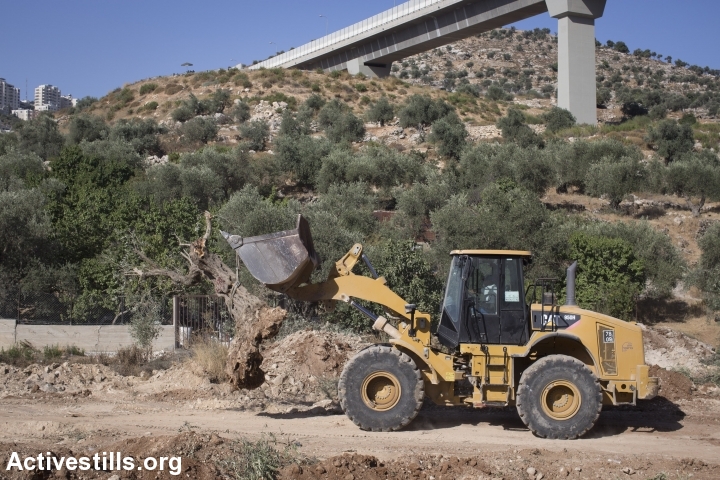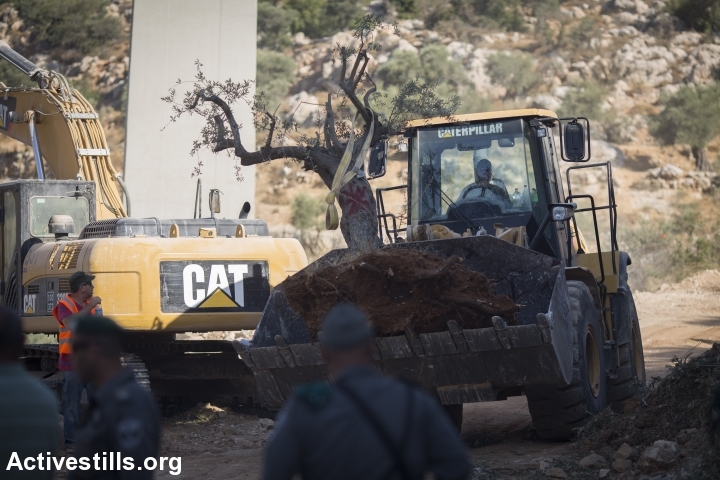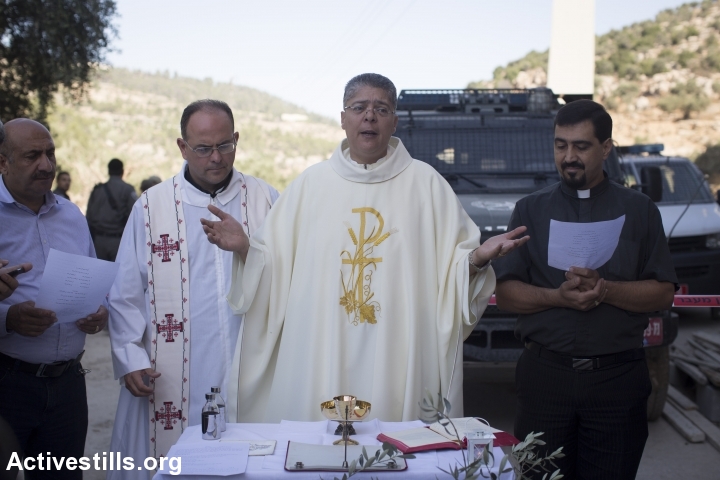Dozens of Palestinian-owned olive trees uprooted to complete separation wall that will eventually fully encircle the Bethlehem area.
Text and photos by Oren Ziv / Activestills.org

The Israeli Defense Ministry renewed its efforts to build a section of the separation wall in the Bethlehem area this week, sending bulldozers and Border Policemen to uproot dozens of olive trees in Wadi Ahmed, on the outskirts of Beit Jala.
The plan is to completely enclose Bethlehem and the surrounding villages — closing all entrances to the area — by the separation wall. Entire areas of the separation wall have yet be built, including in southern Jerusalem; they are slated for completion in the coming years.
WATCH: Bulldozers uproot Palestinian-owned olive trees near Bethlehem
“The role of the wall here is very simple: to cut off Beit Jala from Wadi Ahmad, an agricultural area of 3,500,000 square meters with thousands of olive trees,” Mazen Qumsiyeh , a veteran Palestinian activist, told +972. “Building this part will complete the ghettoization of Bethlehem. The route has nothing to do with security — the entire goal is to annex the valley.”

As we speak, Caterpillar bulldozers climb to the top of a nearby mountain, toward Route 60, and return with olive trees that were uprooted from the route of the planned wall. The company contracted to build the wall moves the trees, and re-plants them on land that will remain on the “Palestinian” side of the wall. “They don’t care to destroy a few dozen trees,” says Qumsiyeh , “They are going to be receiving thousands of olive trees on the land they are taking over.”

“This is not merely cosmetic work,” he continues. “They want to show that the army doesn’t uproot olive trees, but rather move them somewhere else. But the way they are doing it, there is no chance these trees survive. You must remove the tree carefully with the roots in tact — not in such a brutal way.”

Over the last few days, Palestinian Christians from the nearby Beit Jala Church have made their way to the area in order to pray next to the work site. On Wednesday, Border Policemen violently arrested three of the worshippers. Local activists have promised that they will continue to pray at the site as long as the work continues.


